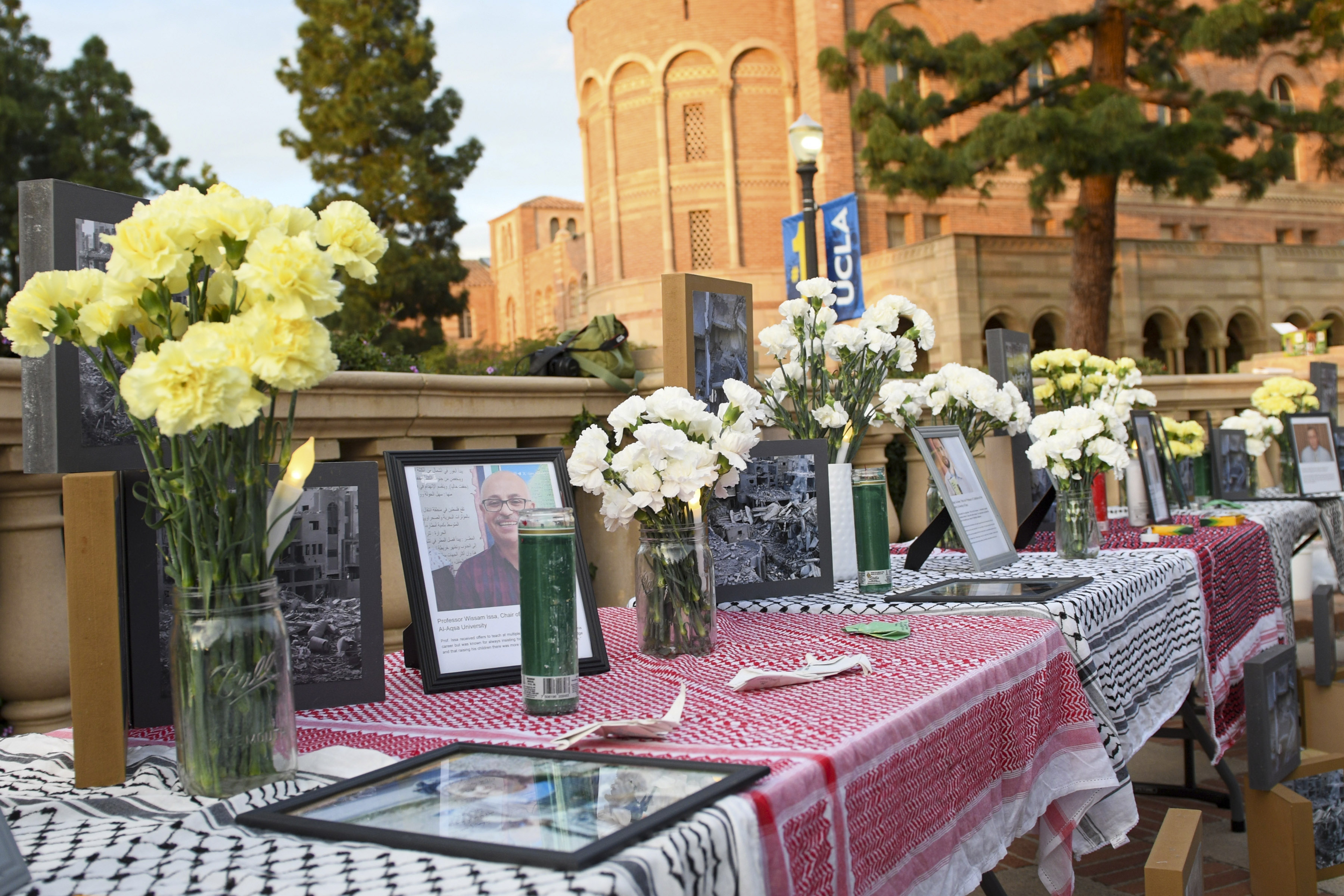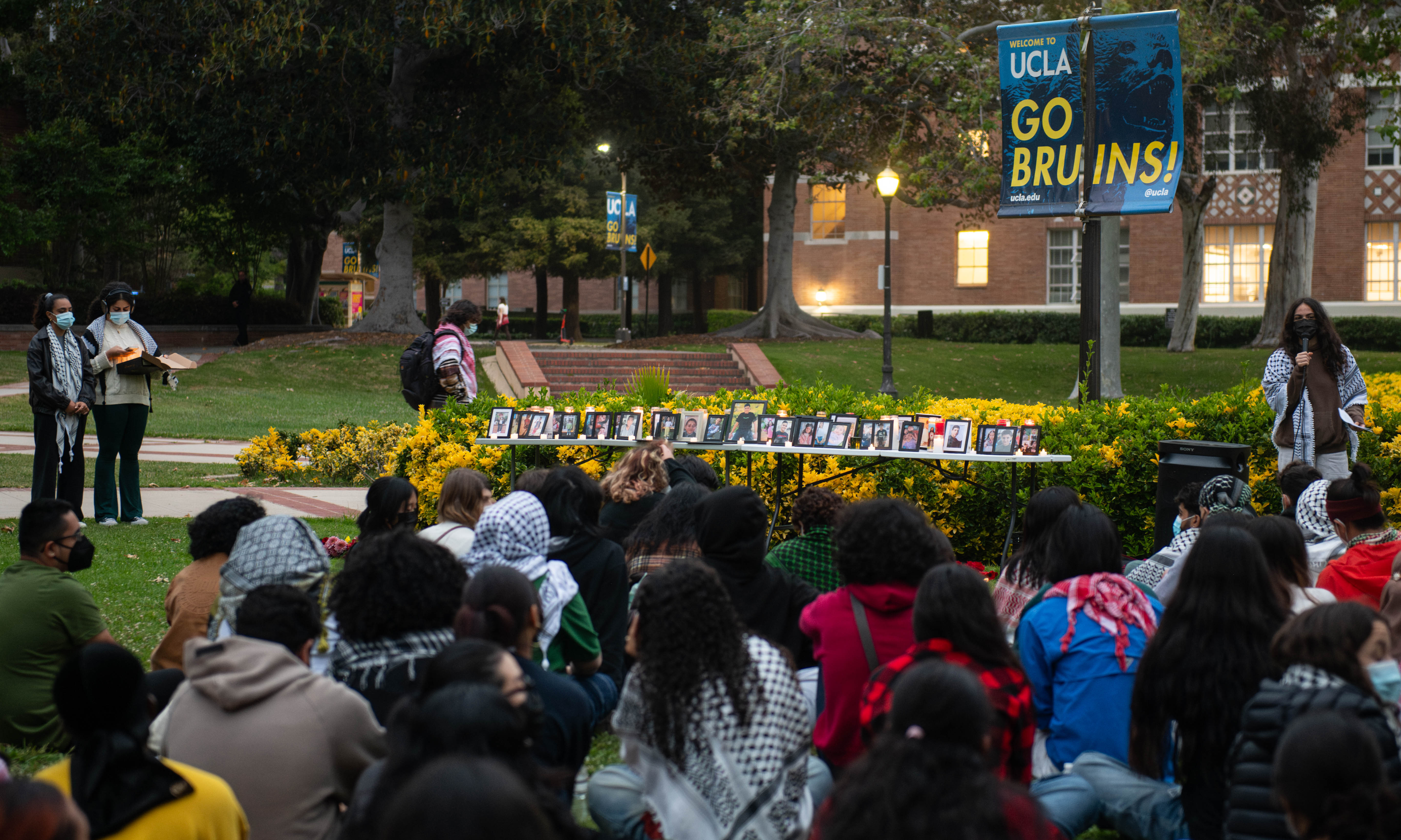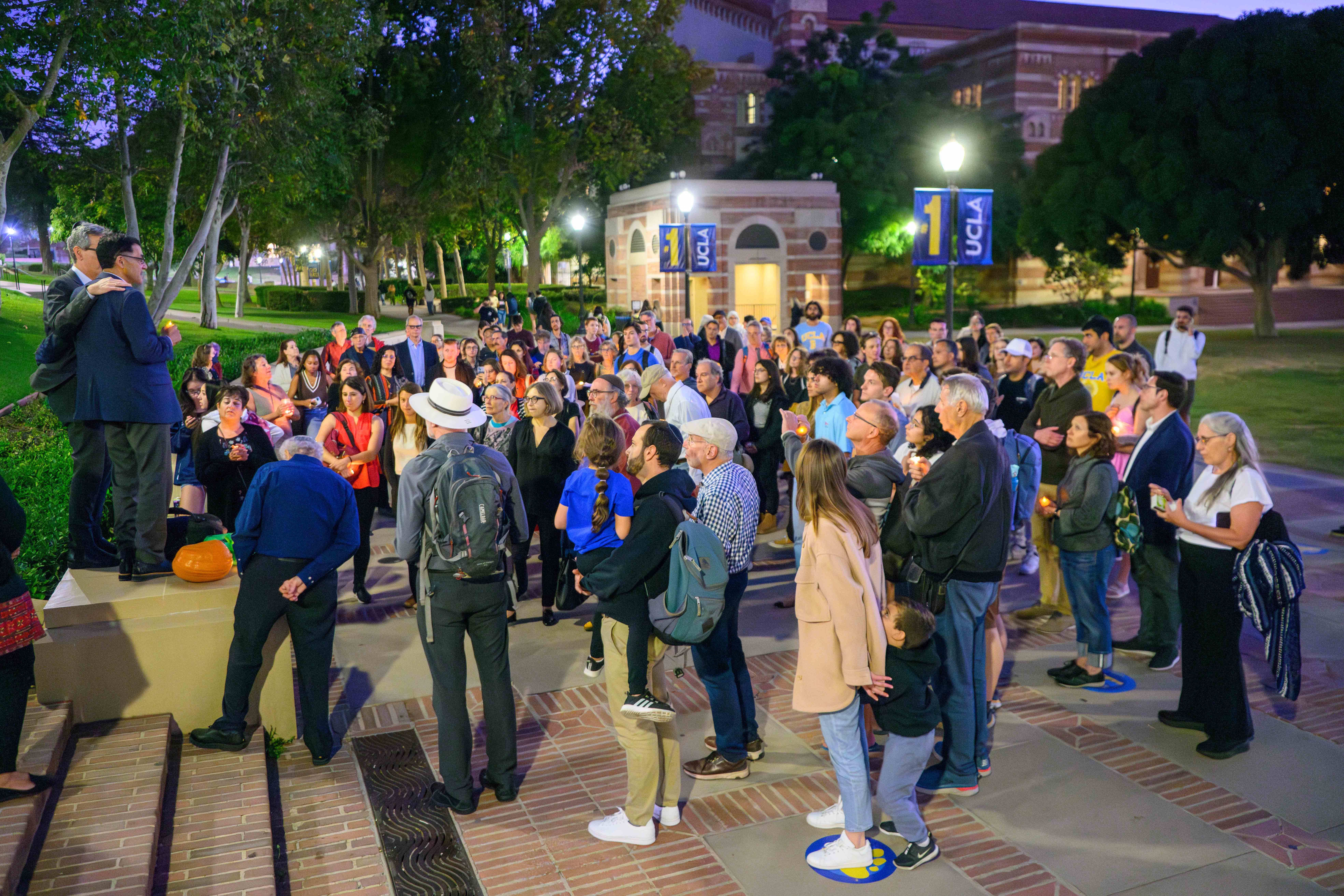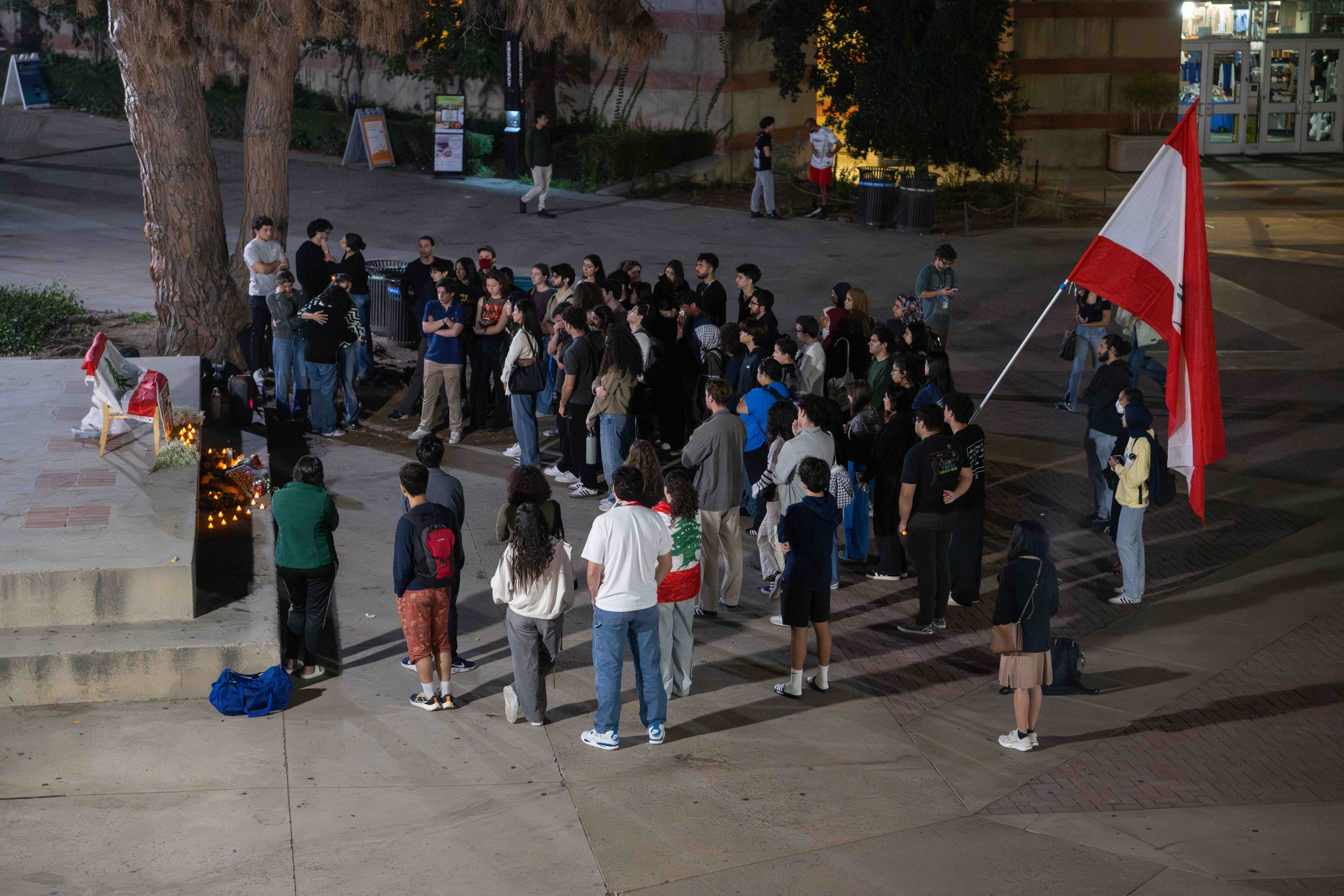Amid renewed bombing, SJP hosts vigil for Palestinians killed by Israeli military
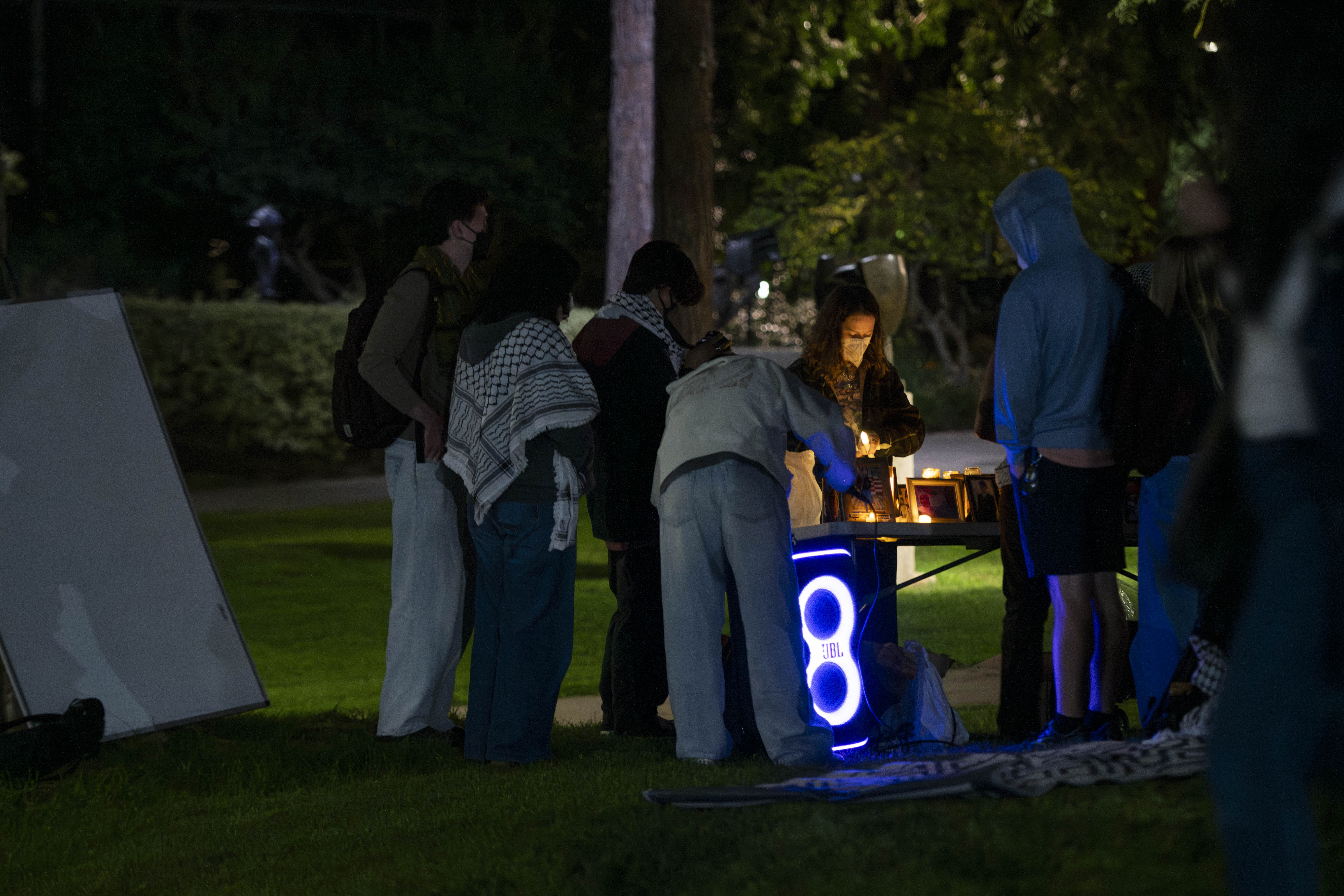
Vigil attendees place electric candles around photos of Palestinians killed by the Israeli military in the Gaza Strip. Attendees held the candles as they heard poems and speeches. (Nicolas Greamo/Daily Bruin senior staff)

By Maggie Konecky
April 4, 2025 2:29 a.m.
Members of Students for Justice in Palestine at UCLA held a vigil Wednesday night to remember Palestinians killed by the Israeli military in the Gaza Strip.
About 30 people gathered in the Franklin D. Murphy Sculpture Garden around 8:30 p.m. for the vigil, which was advertised on the organization’s Instagram. Most attendees wore masks and keffiyehs – scarves traditionally worn as a symbol of Palestinian resistance – wrapped around their heads and shoulders as they stood on a grassy hill facing Bunche Hall and passed around electric candles.
UCLA recommended that SJP, whose spokesperson declined a request for an interview about the vigil, be banned after a Feb. 5 protest outside the house of UC Regent Jay Sures.
[Related: UCLA recommends indefinite ban for SJP, 4-year suspension for Graduate SJP]
The Israeli military launched a series of airstrikes on Gaza on March 18, killing over 400 Palestinians and breaking a ceasefire that had been in place since January, according to the Associated Press.
Organizers began the vigil with recitations of poems by Noor Hindi and June Jordan and read the names and ages of around a dozen of the more than 50,000 Palestinians killed since October 2023, according to AP.
The speaker who presented the poems did not give their name but said in their speech that the poems were a way to remind people that each name has a story.
“With all of the things that are coming from social media, it’s really hard to see them as people who had lives and universes,” the speaker said. “They had people that they looked forward to going home to, and it’s our duty to remember them and to keep their voices alive.”
Alongside information about their deaths, speakers read descriptions of victims’ interests, hobbies and goals.
Organizers set up a papier-mache olive tree across from a folding table that had framed photographs of victims placed across it. They also laid out plastic tarps in front of the display, but many attendees sat together in the wet grass.
After technical issues prevented them from setting up a slideshow presentation, one organizer spoke about Hossam Shabat, a journalist for Al Jazeera who was killed by an Israeli airstrike in March, according to The Washington Post.
“He wanted more than headlines and front lines,” the speaker said. “He wanted soft mornings, quiet dinners, laughter with loved ones.”
Two participants were then invited to lead attendees in prayer. One speaker recited the Lord’s Prayer and the Hail Mary prayer, followed by another speaker who led a smaller group of participants through the Muslim Isha, or nighttime, prayer.
Attendees regrouped around 9:20 p.m. The original speakers then retook the microphone and continued reading out names.
“(Those who died are) stories, bodies, dates and families waiting for their new turn to fight against the enemy forever,” the speaker said. “That’s very important for us to keep in mind.”
Organizers also passed out sticky notes and markers, and they instructed attendees to write down feelings they could not say aloud and attach them to the olive tree. Speakers then read the notes aloud. Many participants wrote about the guilt of watching videos on social media from Gaza while at UCLA, the sadness and the anger that they felt.
The vigil ended with an invitation to view the photographs on the table and stay in the garden for as long as needed. A few people stood up to hug each other and pack up equipment, but many participants sat in the grass for minutes afterward, staring ahead in silence.
“Everyone is full of grief, but I also hear that people want to make a change and want this to stop,” a speaker said. “We shouldn’t let this grief paralyze us but ignite us to keep going.”
Contributing reports from Gabrielle Gillette, metro editor.


